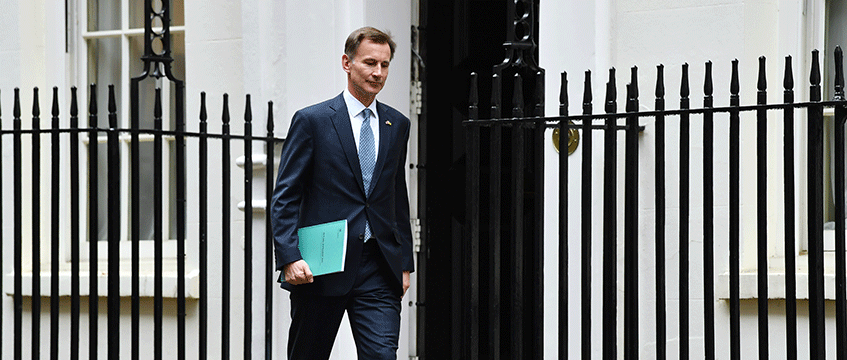Colliers: ‘Autumn Statement was merely a sticking plaster’
Chancellor Jeremy Hunt has been warned not to break his party’s manifesto pledge to reform and reduce business rates in Wednesday’s Budget.
John Webber, Colliers’ head of business rates, said that measures introduced in the Autumn Statement were “merely putting a sticking plaster on a gaping wound”.
“The fundamental flaws of the business rates system remain and Budget 2023 is the chance to address them,” he insisted.
Chancellor Jeremy Hunt has been warned not to break his party’s manifesto pledge to reform and reduce business rates in Wednesday’s Budget.
John Webber, Colliers’ head of business rates, said that measures introduced in the Autumn Statement were “merely putting a sticking plaster on a gaping wound”.
“The fundamental flaws of the business rates system remain and Budget 2023 is the chance to address them,” he insisted.
The government is forecasting that income from business rates will rise to nearly £36bn by 2027/28, from £28.5bn in 2022/23. This prediction appears to flatly contradict the Conservative Party’s manifesto pledge at the last election to cut the bills and reform the system.
In its 2019 manifesto, the Conservative Party promised “to cut the burden of tax on business by reducing business rates. This will be done via a fundamental review of the system”.
Webber said that Jeremy Hunt needed to go further than the temporary measures and warm words of the Autumn Statement. The multiplier, though frozen, should be reduced from 51.2p (or 49.9p for smaller businesses to around 34 p in the pound), as it is “still unsustainably high”.
“Nowhere else in Europe do businesses pay half the rental value of premises in property taxes,” Webber said.
With the multiplier at a lower level, the endless and often confusing system of “sticking plaster reliefs” could be removed or simplified. The business rates system currently comprises 12 reliefs, with around 800,000 property occupiers paying nothing as a result. “Surely everyone that benefits from public utilities and local services needs to pay something – but at a fair rate,” Webber said.
Retail reliefs must also be extended beyond 2024, he said, with “a tapering scheme to be applied at the least”.
Empty property rates relief should be extended to a full year, and should be extended from the warehouse and industrial sectors to include retail and offices.
“The significant amount of long-term empty commercial property in England is due to a lack of market demand and long-term socio-economic factors, not because the landlord wants to keep it empty,” Webber said.
He also said that revaluations should be made annual, “to accurately reflect the dynamic movements of the market and allow occupiers to benefit immediately from adjustments to rateable values”.
Alongside this, he said, all plant that is an integral part of the trade process should be exempted from business rates, as should be investment in new technology to improve sustainability. “This would allow the rating system to complement government policy and targets.”
The valuation process should be made more transparent, the appeal system reformed to be less “unfriendly”, and rogue rating advisors reined in through regulation, he added.
“What we still need is a well-managed and transparent business rates system, that encourages rather than punishes businesses. We urge the chancellor not to ignore the call for urgent reform and use Budget 2023 to encourage investment and growth and help businesses of all sectors floundering in this over burdensome and unfair system.”
To send feedback, e-mail piers.wehner@eg.co.uk or tweet @PiersWehner or @EGPropertyNews
Image © James Veysey/Shutterstock











